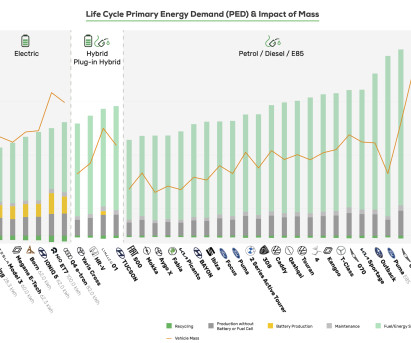Green NCAP LCA study shows detrimental climate and energy impact of increasing vehicle weight, including EVs
Green Car Congress
MARCH 24, 2023
This drives not only a rise in fuel and electric energy consumption, but also creates a wider footprint in vehicle and battery production. Consumers and manufacturers share the burden for this trend given their steady interest in larger cars—in particular SUVs—as their vehicle of choice, commented Green NCAP.

















Let's personalize your content